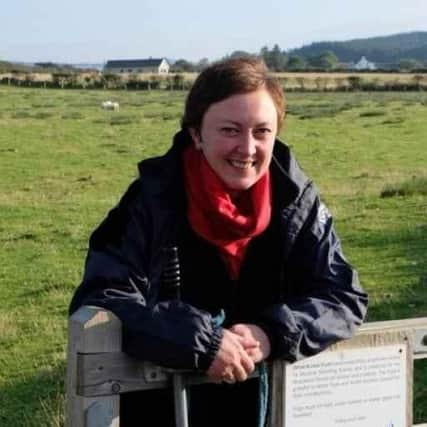Film showcases three small communities who battled through lockdown to stay connected - Ros Halley


The mental health charity Support in Mind Scotland, the Community Health Exchange (CHEX) and Public Health Scotland recognised the paramount importance of maintaining connections with communities. Working together, we believed we could promote community-led health as a way to tackle Scotland's health inequalities. Even during a crisis, we saw that we could engage people in discussions around how residents could participate in community wellbeing. In particular, we felt that we could shine a light on mental wellbeing.
So, whilst we all listened in horror to the country’s – indeed, the world’s - battle against Covid-19 during winter 2020, these three organisations here in Scotland worked together, testing ways to help communities maintain good mental health by building resilience through social connection. The initiative, which became known as the ‘Winter Lockdown Project’, commenced at a time when over 9,000 people were losing their lives to Covid-19 in the UK each week.
Advertisement
Hide AdAdvertisement
Hide AdOperating over seven months in three locations – East Lothian, West Lochaber and Perth & Kinross – the Winter Lockdown Project brought together partners from Haddington’s Support from the Start Network, Ewen’s Room and Meigle & Ardler Community Development Trust. As each area set out to find new ways to enable people to remain connected to friends, family and neighbours, bonds were formed, and creative ideas emerged.
By participating in each local group’s actions – such as putting a card in your window to indicate whether you are feeling well, organising online musical events, helping one another to learn new skills and crafting sessions for young and old – local people could contribute to community-led mental health, and spread the word about the benefits of being part of something together.
The Winter Lockdown Project flourished under the principle that anyone can be involved in researching and improving health. As restrictions eased and sunnier weather beckoned, the Winter Lockdown Project slowly concluded. At the Project’s end, the news headlines were reporting 150 weekly deaths. As we all wondered what the ‘new normal’ might be like, the same motivations that had driven the Project’s participants to persevere through the dark months also enabled the three areas to embark on a final step together. They decided, as a way of capturing their own experiences of winter lockdown, to create a film, assisted by Socially Engaged Artist, Pam van de Brug. This film – ‘You’re on Mute’ – will launch on World Mental Health Day, Sunday 10th of October 2021, and features interviews with people having lived with COVID-19 restrictions for over a year.
The film acknowledges people’s different journeys, experiences, and ongoing fears. It captures some of the highs as well as the lows, the laughter, the care, the camaraderie, and the things that will shape us going forward.
The film and the feedback from the groups involved in the Project have helped to capture learnings for future public health action, policy and community engagement initiatives. There can be no better way of discovering the vital role of communities for our mental health than to listen to, and learn from, the voices of local people. ‘You’re on Mute’ helps us to do just that: twelve people from across three small communities during one global pandemic giving inspiration to us all.
We hope that the Winter Lockdown Project and ‘You’re on Mute’ show that community-led approaches to improving our health are central to our wellbeing, and should most definitely not be on mute.
Ros Halley, Rural Communities Manager, Support in Mind Scotland
Comments
Want to join the conversation? Please or to comment on this article.